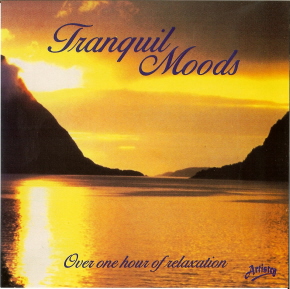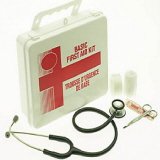|
Open Mind Stress, Measure Your Stress Level

Open Mind Stress helps you in Understanding And Dealing With Everyday Stress
THE OPEN MIND VIEW OF WHAT STRESS IS... Stress is an abnormal condition that disrupts the normal functions of the body or mind. No two people are affected in exactly the same way, or to the same degree, but most people living in our highly industrialized society suffer from its effects at one or more times during their lives. Symptoms range from mind headaches, occasional bouts of insomnia, overall restlessness, digestive problems, irritable bowel syndrome, constipation and diarrhea, and abdominal pain. Open Mind Stress helps you to Measure Your Stress Level
If you've been wondering what degree of stress you live under, here is a quick way to get a fair estimate. Dr. Thomas and Dr. Richard Rahe composed a table of events and the amount of stress they cause. The most interesting feature of this table is that the people they interviewed actually told them, how they could rate specific events for the stress they cause, so this is human rather than a medical appraisal of the degree of stress those events caused As you get used to certain changes in your life, they become less stressful, so these ratings will not be entirely accurate for you. If, for example, you take a vacation only every five years, you might rate it a 25 instead of a 13. The common starting point used was a standard rate of 50 for marriage for all the people interviewed.
EVENT Death of a spouse. 100 Divorce. 73 Marital separation. 65 Jail term. 63 Death of a close family member. 63 Personal injury or illness. 53 Marriage. 50 Fired at work. 47 Marital reconciliation. 45 Retirement. 45 Change in health of family. 44 Pregnancy. 40 Sexual difficulties. 39 Addition of new family member. 39 Business of adjustment. 39 Change in financial status. 38 death of a close friend. 37 Change to a different line of work. 36 Arguments with spouse. 35 Mortgage over$/£100,000. 31 Forclosure of mortgage or loan. 30 Change in job responsibilities. 29 Son or daughter leaving home. 29 Trouble with in-laws. 29 Outstanding personal achievement. 28 Wife or husband begins or stops work. 26 Beginning or end of school. 26 Change in living conditions. 25 Revision of personal habits. 24 Trouble with the boss. 23 Change in work hours or conditions. 20 Change in residence. 20 change in school. 20 Change in recreational activities. 19 Change in church activities. 19 Mortgage or loan under $/£100,000. 17 Change in sleeping habits. 16 Change in family get-togethers. 15 Change in eating habits. 15 Vacation. 13 Christmas. 13 Minor violations of the law. 11
The combined total of both positive and negative stresses in the past few months will give you an idea of your current stress level. Keep in mind that people have varying stress-handling capacities and this table does not take into account such regular stresses as recreational drug use, alcoholism, chronic illness, allergy, battering and random stresses such as car accidents, contest winning to the dreaded tax audit. Open Mind Stress presents this as information only and open mind stress reccomends it should not be used for diagnostic or treatment purposes. Examples that can cause work related stress are trying to get too much work done in too little time, cutting corners or otherwise taking chances that may put you, or someone else at risk, and trying to get along with superiors and co-workers. Everybody has days when there simply seems there's too much work to get done. Trying to get everything done by yourself can bring on stress. Some people try and deal with the pressure by delegating certain jobs to others. Open Mind Stress suggests if you can unburden yourself and not worry about when and how the work gets done, if you can put full faith and trust in co-workers or subordinates it can be an effective escape valve. Trouble is, most people can't let go. If you have the type of personality that demands to know how things are going, chances are you're only increasing the pressure and stress on yourself by constantly worrying if the work is getting done or not.
To lessen stress you must either learn to trust others to get the job done, or prioritize jobs to get rid of "what must be done" first. Many people tend to "put off" the difficult jobs they hate to do until the last possible minute. Of course, this only makes it all the more difficult and stressful when you finally get around to doing what you should have done earlier.
When you feel the "walls closing in on you" open mind stress reccomends, take abreak. Many people in trying to relax actually kick their bodies into overdrive by using their break time to either get anicotine or caffeine fix. Instead of calming you down, both substances being stimulants speed up your body processes. You may think you're relaxing, but your blood pressure and heart areworking harder.
Open Mind Stress suggests how to lessen stress! Instead of coffee or cigarettes try a brief chat with friends, a short leisurely walk, even just looking out the window for a few minutes. Never take breaks, or eat lunch at your work station. The point of a break is to get away from whatever work you're doing. You can't get your mind off your work if you're chained to your work area.Relax open your mind.Take a break, sit back and enjoy some soothing music.Just click on the Play Button and enjoy one of the tracks with the complements of open mind stress.
If you wish to buy this album click here for more information 
STRESS AWAY FROM WORK Anyone who's ever been stuck in a major traffic jam probably has seen the darker side of many people's personalities. It seems everyone is always in a hurry to either get, or go somewhere, and never seem to allow enough time for the everyday problems that are bound to crop up from time to time.
Banging on the steering wheel, laying on the horn, giving someone the "finger," or shooting a string of obscenities is only reacting to something that has already happened. You can't make the guy in front of you go any faster, or prevent someone from cutting you off. Accidents, road repairs, and just plain heavy traffic happens. Learn to deal with it or don't drive. If you must, at least change your route from time to time. Always allow plenty of time, and try and make all trips as pleasant as possible. You may not realize it, but how you act on your way to work, or on your way home will have either a positive or negative impact.Open mind stress suggests accept the fact that it's something you just have to get through so you may as well try and make the best of it. Most people are smart enough to know that they should set some time aside to take it easy. If you participate in some sports activity, remember you're doing it to relax! While many people naturally have their competitive nature come to the surface when engaging athletics, don't lose sight of the fact you're participating to have fun. Don't get bent out of shape if you don't always win or otherwise play up to par. The whole point is to enjoy yourself and forget your everyday worries. Treat it as a night out with the "boys," or gals and relax!
Families can be as source of support, an oasis away from the everyday pressures or sometimes it's only a place to grab a few hours sleep and get back in the rat race. Your children, spouse, family members, in-laws can be a source of irritation at times. If someone is constantly doing something that really "bugs you," tell the offending person or persons and see if things can be straightened out before things get out of control.
A man's home (a woman's too) should indeed be a place to rest and relax. Many people find it helpful unwind by sharing the day's events with their loved ones. It should not develop into a daily routine, nor should you give a detailed blow by blow recap of the day's events, but when things go wrong, who better to talk to than your family? Holding things back, keeping it inside yourself, almost always does more harm than good and can affect not only your well-being but everyone else in your family as well. Talking things over is a great way to get rid of built up stress that many people overlook.
Open mind stress thinks a great way to get rid of stress is, every once in a while, do something totally different and unexpected without any priorplanning. Don't fall into a trap when you must do such and suchthing a certain way, or at specific time or place. If you alwaysput on a blue suit on Thursday, or go to an Italian restauranton Tuesday, break the habit every once in a while. Even doingthings you like can become stressful if you're stuck in the sameold rut week after boring week.
Open mind stress suggests stress can best be managed by realizing what you can change
about your life and knowing what you can't. Learn how to
recognize the difference and you'll enjoy life more and be
better able to deal the ups and downs that are part of
everyone's life.
Return from Open Mind Stress to Health
|












